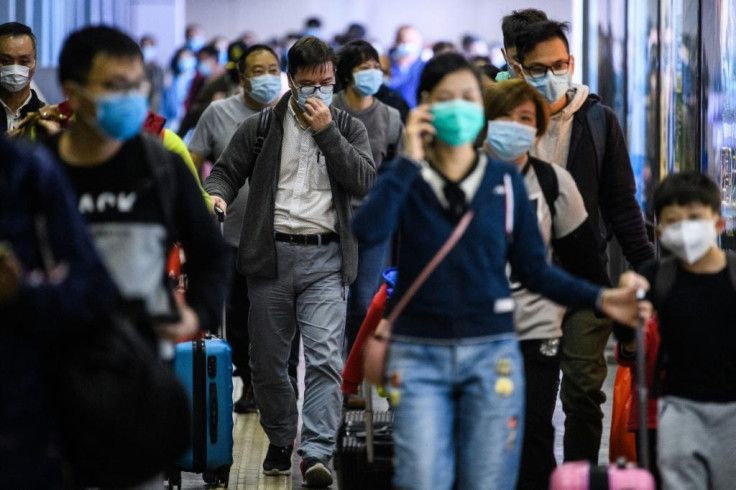Asian markets fall on coronavirus impact woes
The virus has jolted major supply chains for everything from food and household supplies to car and electronics parts.
Markets across the Asia-Pacific were in the red on Monday with investors worried about the impact of the China coronavirus outbreak on the global economy.
The virus has killed more than 900 people, infected 40,000 across mainland China and spread to more than two dozen countries in what has been termed a global health emergency.
It has also jolted major supply chains for everything from food and household supplies to car and electronics parts.
Tokyo's benchmark Nikkei 225 index closed 0.6 percent down, while Hong Kong pared some losses after tanking 1.1 percent at the open.
Elsewhere in afternoon trade, Sydney slipped 0.1 percent, Seoul was down 0.6 percent and Singapore was 0.7 percent lower.
Shanghai, however, recovered and was up 0.3 percent after opening down 0.5 percent.
Taipei, Jakarta, and Mumbai were also under water.
Investors around the world have been watching with concern as China, the world's second-largest economy, battles the novel coronavirus, which emerged at the end of last year in the central city of Wuhan.
The domestic impact was reflected in China's inflation figures released Monday, which showed the highest rise in consumer prices in more than eight years, with food prices spiking more than 20 percent.
It has also disrupted the supply chains of major global firms such as Apple supplier Foxconn and auto giant Toyota. Key production facilities across China have been temporarily closed, with authorities imposing lockdowns and quarantine measures.
The World Health Organization has said there are some signs that the epidemic is stabilising in China, but the agency's chief has cautioned that the number of cases overseas could be just "the tip of the iceberg".
"This coronavirus seems to be going on for longer, is infecting more people and the hit to growth will be longer," Diana Mousina, an economist at AMP Capital Investors, told Bloomberg TV.
"You won't be able to recoup all of the negative impacts in the first quarter."
Analysts have cautioned that the economic impact of the coronavirus outbreak in mainland China and beyond is yet to be fully understood.
"Let's not try to sugar coat things here," said Stephen Innes, chief market strategist at AxiCorp.
"With a chunk of China's industrial complex shuttered beyond (Lunar New Year), we're headed for one of the worst Q1 economic growth periods on record."
The Asian falls at the start of the week came after a negative cue on Friday on Wall Street, where the three main indexes closed down.
Depressed economic activity in China, the world's largest importer and consumer of oil, has also hit energy markets, with crude prices tumbling.

A committee appointed by OPEC recommended additional output cuts on Saturday, citing the negative impact of the epidemic on economic activity.
Both main contracts, West Texas Intermediate and Brent Crude, were down 0.1 percent on Monday.
"Asian markets opened much lower and have recovered some of those initial losses," said Jeffrey Halley, senior market analyst for Asia-Pacific at OANDA.
"It is, however, hard to see further gains occurring from here against the backdrop of the coronavirus.
"That is likely to be the theme of the week, as the economic damage is totalled up from the outbreak."
Tokyo - Nikkei 225 - DOWN 0.6 percent at 23,685.98 (close)
Hong Kong - Hang Seng: DOWN 0.7 percent at 27,223.15
Shanghai - Composite: UP 0.3 percent at 2,883.21
Euro/dollar: UP at $1.0955 from $1.0946
Pound/dollar: UP at $1.2904 from $1.2894
Euro/pound: DOWN at 84.89 pence from 84.92
Dollar/yen: UP at 109.83 from 109.80
Brent Crude: DOWN 0.1 percent at $54.50 per barrel
West Texas Intermediate: DOWN 0.1 percent at $50.36 per barrel
New York - Dow: DOWN 0.9 percent at 29,102.51 (close)
London - FTSE 100: DOWN 0.5 percent at 7,466.70 (close)
Copyright AFP. All rights reserved.
This article is copyrighted by International Business Times, the business news leader





















